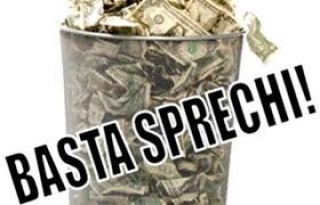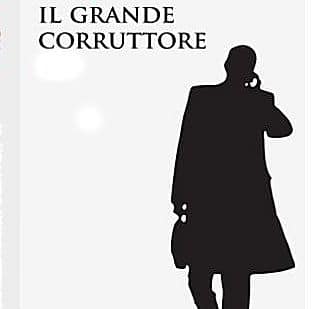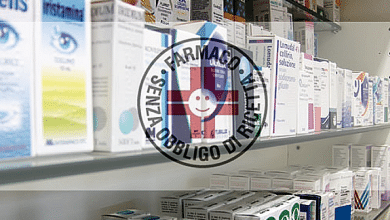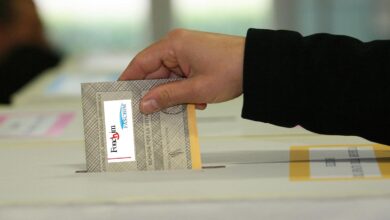
Waste in healthcare: from beds that don't fit in elevators to anesthesiologists who work as nurses
Nursing – 10/14/2019 by Elsa Frogioni
Social media often offer real-time information, or food for thought. Like the Facebook post by Lorenzo Tosi is a nurse colleague at the 118 Central Station Emilia Ovest and emergency medical services.
The theme is that of waste in healthcare, due to “silent management errors”often attributable to inappropriate decisions of some managers, who are almost never called to account for them, or to the lack of political will to implement organizational changes with the appropriate use of professionals. Now the only observable change is that Pandora's box has cracked and this submerged "malpractice" is being revealed.
Lorenzo Tosi, while attending a health education event had the opportunity to hear the following discussion.
Below is the post:
At a congress in the healthcare world…
 Moderator: what in health care, in your opinion, leads to a waste of resources?
Moderator: what in health care, in your opinion, leads to a waste of resources?
Person 1: in my hospital the beds for the orthopedic department bought and never used because they don't go in the lift!! Moderator: Well, other examples?
Person 2: the maternity ward was closed at my place, despite the fact that the premises had recently been renovated and painted. The equipment provided (including a water birth tub and some incubators) remained unused!
Moderator: Interesting! Others?
Person 3: we often repeat pre-hospitalization tests: for example, patients awaiting surgery are often hospitalized to carry out all the pre-operative visits and tests, only to be sent home because the date of the surgery is postponed and so, after a few months, the citizen must repeat all the tests.
Moderator: I understand. Do you see? Lots of waste of resources. We misuse what we have. But I see another hand raised. She? Tell me what is the wasted resource in your hospital?
Person 4: si be me the territorial emergency is carried out by anesthesiologists who intervene, called by the nurse who should have the drugs but do not supply them, for a glucose at 33% in a patient with 40 mg/dL of blood sugar. While the volunteers intervene alone on an anaphylactic shock, because the only two health workers are both on the same service. Waste is people's lives… it's using anesthesiologists to be nurses and volunteers to be anesthesiologists.
Moderator: ….I am speechless…
Ed:
In 2017, the National Health Service wasted over 21 billion euros, almost one euro out of five. The Gimbe Foundation calculated it in its own sustainability report. They come  updated estimates on the impact of waste on public health expenditure in 2017 – reads the document, – 21.59 billion euros eroded by overuse of ineffective or inappropriate healthcare services and benefits (6.48 billion), fraud and abuse (4.75 billion), excessive cost purchases (2.16 billion), underuse of effective and appropriate services and benefits (3.24 billion), administrative complexities (2.37 billion), inadequate coordination of assistance (2.5 9 billion). Preliminary estimates show that 19% of public spending, at least 40% of out-of-pocket spending (private spending) and 50% of intermediated spending (by funds or insurance) do not produce any return in terms of health. (Health and wellness)
updated estimates on the impact of waste on public health expenditure in 2017 – reads the document, – 21.59 billion euros eroded by overuse of ineffective or inappropriate healthcare services and benefits (6.48 billion), fraud and abuse (4.75 billion), excessive cost purchases (2.16 billion), underuse of effective and appropriate services and benefits (3.24 billion), administrative complexities (2.37 billion), inadequate coordination of assistance (2.5 9 billion). Preliminary estimates show that 19% of public spending, at least 40% of out-of-pocket spending (private spending) and 50% of intermediated spending (by funds or insurance) do not produce any return in terms of health. (Health and wellness)
From January to June 2019 the cases of corruption reported in the press were 387 all over Italy and the regions that record the highest number of cases are Lombardy, Sicily and Campania. The three sectors most critical: Public Administration, health and politics. What is most striking is the fact that these three sectors - so crucial in the lives of all of us - alone represent almost 2/3 of the cases reported by the media. And even 1 out of 3 cases is related to public procurement. This demonstrates once again how high the risk of corruption is in such a sensitive sector as public works (Transparency International Italy)
Corruption in healthcare is estimated in our country at €23.6 billion.
Prof. Paolo Esposito of the University of Eastern Piedmont compared the two "anti-corruption laws", i.e. the 231/2001 and the 190/2012. The resulting impression is that the anti-corruption law and the delegated decrees have not clearly traced application methods in favor of the operators, nor affected in terms of repression or prevention of corruption phenomena, above all in lack of a widespread managerial culture and training. Furthermore, the legislation has not affected the choice of managers capable of managing healthcare in the interests of the public system alone.
 Looking at the experience of the ineffectiveness of the application of legislation, the risk is that we continue "to act like that guy who was looking for his keys under a lamppost, not because he had lost them there, but because that was the only lighted point on the road" (Fitoussi, 2013). We need to go and look for the causes of the corruption phenomena and analyze them, without limiting ourselves to looking only where we know and continuing to make mistakes. The resources are there but they take a wrong turn. (Antonio Magi Sumai)
Looking at the experience of the ineffectiveness of the application of legislation, the risk is that we continue "to act like that guy who was looking for his keys under a lamppost, not because he had lost them there, but because that was the only lighted point on the road" (Fitoussi, 2013). We need to go and look for the causes of the corruption phenomena and analyze them, without limiting ourselves to looking only where we know and continuing to make mistakes. The resources are there but they take a wrong turn. (Antonio Magi Sumai)
In all this devastating chaos, what does ANAC do? It elaborates the so-called anti-corruption codes which impose abstruse bureaucratic and formal forms which do not affect the phenomenon at all, but block the performance of the working activity. Those who want to corrupt, or be corrupted, will certainly be more diligent in observing the codes, the more honest, discouraged, are destined to abandon the field, irreparably polluted by corruptors and corrupted people who modify the market according to their interests.
The case of Scientific Informers is emblematic, blamed for ignorance. None of the 387 corruption cases in Italy in the first six months of 2019 involved ISFs, but in two or three cases they were identified as ISFs: Area Managers, Company Executives, sales representatives. According to the law, none of these have anything to do with the ISF. But it is easy to hit and feed the press the ISF, which some indicate as stakeholders, distracting and thus leaving the real stakeholders undisturbed.





